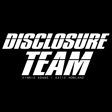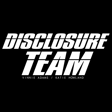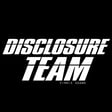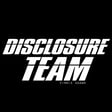
Matt Ford - UFOs, Government & Politics
Matt Ford is an Emmy Award-winning Los Angeles-based political activist, influencer, and host of The Good Trouble Show. He is the founder of the Political Action Committee Stand For Better and has produced dozens of hard-hitting political ads for social media with over 20 million video views on Twitter alone. He has published op-eds on the UAP phenomenon, in addition to United States and Russian nuclear policy.
Matt Twitter: @GoodTroubleShow, @StandForBetter
Matt YouTube: / thegoodtrou. .
Matt TikTok: https://www.tiktok.com/@goodtroubleshow
Matt Facebook: https://www.facebook.com/profile.php?...
!! SUPPORT DISCLOSURE TEAM !!
Become a YouTube member: https://www.youtube.com/channel/UCMEn...
Patreon; https://www.patreon.com/disclosureteam
Buy me a coffee; https://www.buymeacoffee.com/disclosureteam
Disclosure Team Merch; https://disclosureteam.bigcartel.com/
Disclosure Team instagram; https://www.instagram.com/disclosure_team/
Disclosure Team twitter; https://twitter.com/disclosureteam_
Disclosure team is part of the Anomalous Podcast Network
Vinnie Adams is an ambassador for UAP Society; https://uapsociety.com/



